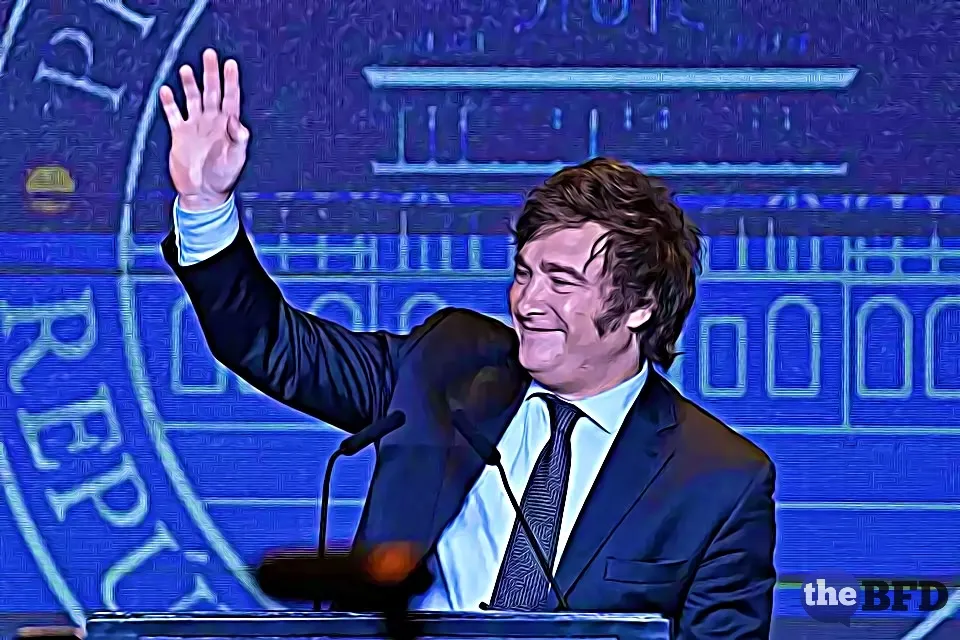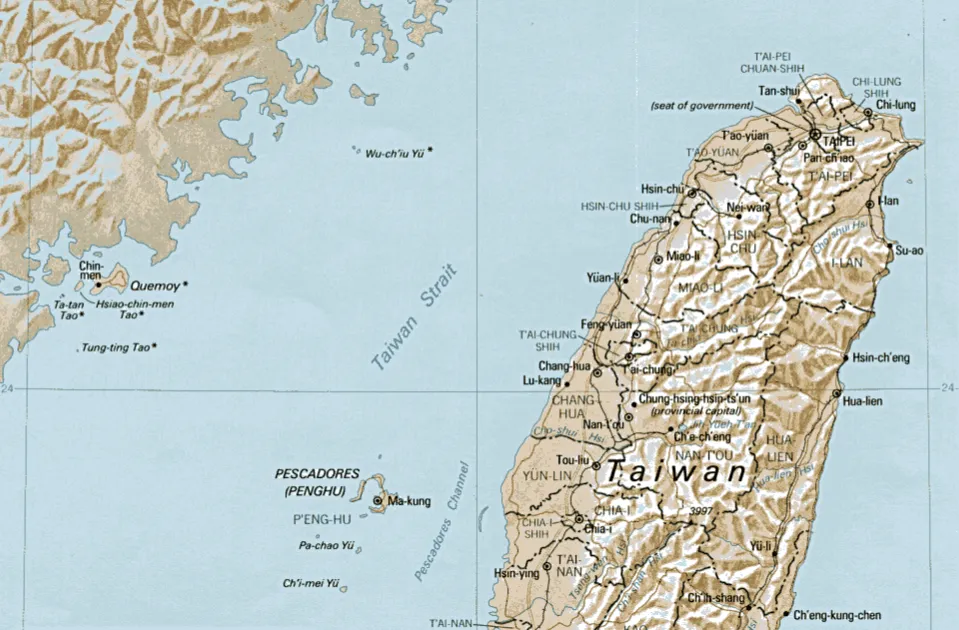Table of Contents
Peter Jacobsen
Peter Jacobsen is a Writing Fellow at the Foundation for Economic Education.
Javier Milei, the recently elected president of Argentina, is somewhat famous for his eccentric relationship with his dogs. There are a lot of quirks about Milei’s dogs, including the fact that they are literal clones (yes really), but most interesting to me is their names.
All the dogs are named after libertarians and/or economists. Most niche are his dogs Robert and Lucas named after the late economist Robert Lucas. His two other dogs are named Milton and Murrary for economists/libertarians Milton Friedman and Murray Rothbard, respectively.
These last two figures are interesting because, though they had much in common, Friedman and Rothbard were in an important sense adversaries.
In 1977, Rothbard wrote an article explaining why. His reason may be different than you’d expect. Rothbard was a committed anarcho-capitalist (similar to Milei) whereas Friedman could rightly be described as more of a classical liberal. However this, according to Rothbard, was not the main division between them. In Rothbard’s words, “[w]hat divides the [libertarian] movement now, the true division, is not anarchist vs. minarchist.”
Instead, what really divided the movement according to Rothbard was the answer to a simple question. And through this question I think we can find the most fruitful lens to examine Milei.
The question is, do you hate the state?
The Art of Hating the State
Rothbard considered Friedman an adversary because Friedman didn’t hate the state. Rothbard considered the state to be “a predatory gang of criminals” and, as such, held the conviction that “the State is the enemy of mankind”.
In contrast, Rothbard criticizes Milton Friedman and his son David Friedman (an anarchist like Rothbard) on the grounds that they do not hate the state. Rothbard characterizes both Milton and David as advocating for shrinking or abolishing the state merely because the utilitarian cost-benefit analysis seems to vindicate it.
To Rothbard, it doesn’t matter that David is an anarchist and Milton is a classical liberal. He finds both of their positions unacceptable because they do not sufficiently hate the state. In Rothbard’s view this makes them insufficient allies. In contrast, someone who is not philosophically libertarian can be an ally so long as they, like Rothbard, hate the state.
To help decide if someone hates the state, Rothbard imagines a simple thought experiment. If a magic button existed which, when pressed, abolished the state, would you push it so hard you’d get a blister, or would you run a cost-benefit analysis? To quote Rothbard,
“[The radical’s] button-pushing position stems from the abolitionist’s deep and abiding hatred of the State and its vast engine of crime and oppression. With such an integrated worldview, the radical libertarian could never dream of confronting either a magic button or any real-life problem with some arid cost-benefit calculation. He knows that the State must be diminished as fast and as completely as possible. Period.”
It’s easy to confuse what Rothbard is saying here with an opposition to making gradual changes to earn liberty rather than extreme changes. This isn’t what Rothbard is saying. Rothbard is fine with gradual changes being the route to liberty if they are necessary. To him it’s a question of the motivation behind the gradualism.
“There is not a single abolitionist who would not grab a feasible method, or a gradual gain, if it came his way. The difference is that the abolitionist always holds high the banner of his ultimate goal, never hides his basic principles, and wishes to get to his goal as fast as humanly possible. Hence, while the abolitionist will accept a gradual step in the right direction if that is all that he can achieve, he always accepts it grudgingly, as merely a first step toward a goal which he always keeps blazingly clear.”
Milei Hates the State
Milei is the victim of sloppy labeling. If you search Twitter, you’ll find non-stop arguments about which labels properly describe Milei. Some argue he’s far-right. Others claim he isn’t right-wing at all. Milei claims the label anarcho-capitalist. Others claim he isn’t really an anarcho-capitalist or that anarcho-capitalists aren’t really anarchists at all! I’ve seen political strategists desperately argue if he’s a populist or not to try to preserve their claim to successful political strategy. His Wikipedia page highlights that he’s described as ultra-liberal and ultra-conservative. Confused yet?
These labeling exercises are a waste of time. A la Rothbard, we receive a much better way to evaluate Milei. Let’s answer the simple question: does Milei hate the state?
It seems like the answer is an unabashed yes. There are dozens of videos circulating on Twitter of Milei throughout the years, and they share a common theme. In explaining what is wrong with his nation, he frequently combines “the state,” politicians and bureaucrats, and leftists in a colorful profanity-laced cocktail. Here are a few that I’ll share for you to watch at your discretion.
Admittedly, I don’t speak Spanish. It’s possible some of the subtitles are incorrect on these videos (though I’ve seen many claim they are correct).
But it doesn’t even matter. Even without the words, you can see the disdain Milei has on his face when talking about the parasites who compose the state. You can see his unbridled joy as he talks about cutting government agencies. Truly Milei hates the state.
Some radicals may be tempted to say his policies are more tepid than they’d like. For example, why not abolish government currency rather than dollarizing? But remember, hating the state isn’t a matter of whether changes are gradual or sweeping—the question is, what is the motivation for Milei’s monetary policy? Is it because of a cost-benefit analysis or because he despises the works of the Argentinian state? The latter seems more at the root of his issue.
A Head of State Who Hates the State
Milei’s position is unique because, as far as I can tell, he’s the only country leader who fits Rothbard’s criteria in recent history. Interestingly, libertarians who do not hate the state (Rothbard labels them as “conservative” libertarians as opposed to radicals) have arguably had a seat at the table.
Although many libertarians wouldn’t claim Reagan, it’s no secret Milton Friedman had significant influence in his administration. He advised Reagan informally in his campaign and formally as a member of the President’s Economic Policy Advisory Board.
Reagan’s administration did achieve a certain degree of success with libertarian goals. Famously, Reagan initially lowered taxes. However, an unwillingness or inability to lower spending in a meaningful way led to high deficits and eventually tax increases during his administration and possibly after.
Whether Friedman through Reagan was successful at bringing about more liberty in the long run is a matter I’ll leave for you to judge. I know how Rothbard would answer.
So either we’ve seen the “conservative” libertarian effect on policy already, or it’s been unable to get a real seat at the table. In either case, Milei seems to offer a different path forward. With Milei, we now have the chance to see what happens when a “radical” libertarian leader runs the state. The lingering question is, will it be enough?
Milei faces several obstacles in bringing about change in Argentina. The economy is in terrible shape. Incumbent politicians and the rent-seekers they support have ample incentive to try to stop Milei from accomplishing his goals. It’s not obvious that the international community will be friendly to a leader taking such an extreme path either—how will the American government react if Milei’s radical small government turn starts casting doubt on America’s growing leviathan?
Regardless of opposition, it seems like Milei’s administration will allow us to answer a question long implied by Rothbard’s 1977 essay. Is hatred for the state enough to bring about real change toward liberty and prosperity in one of the world’s most chaotic political environments? We’ll see soon enough.
This article was originally published on FEE.org. Read the original article.







